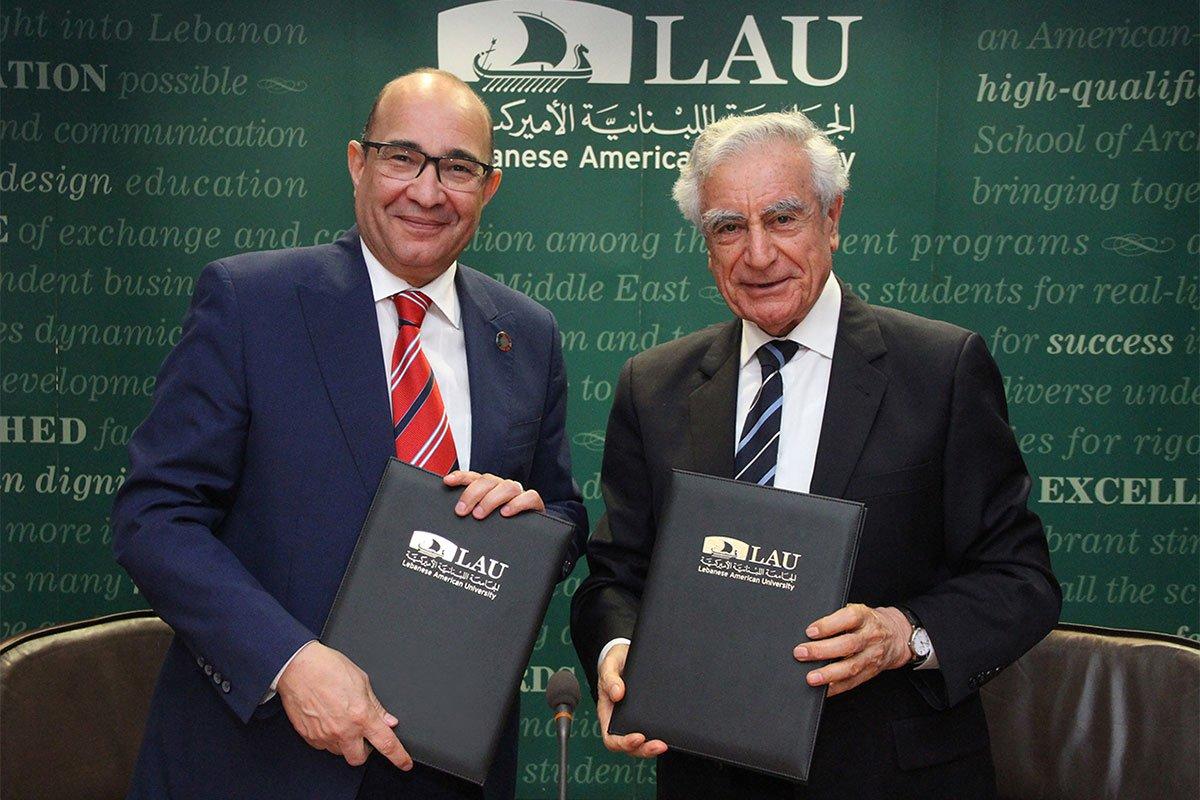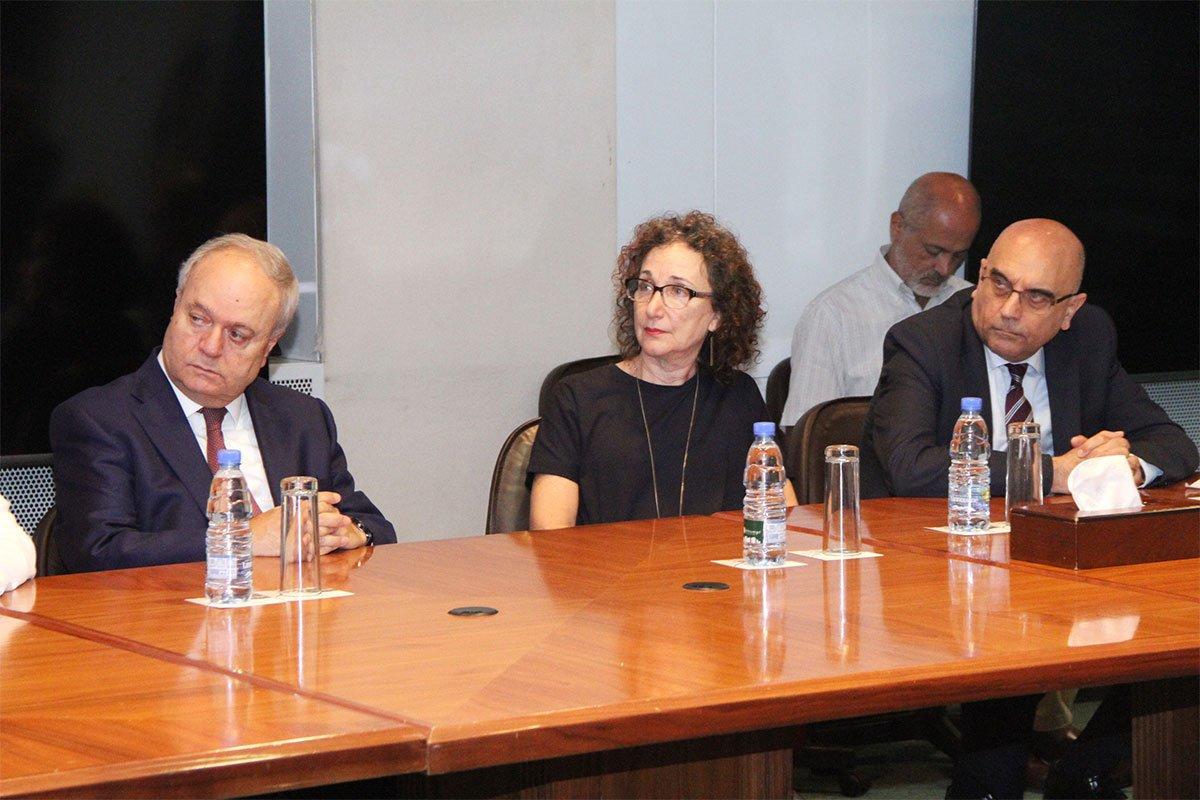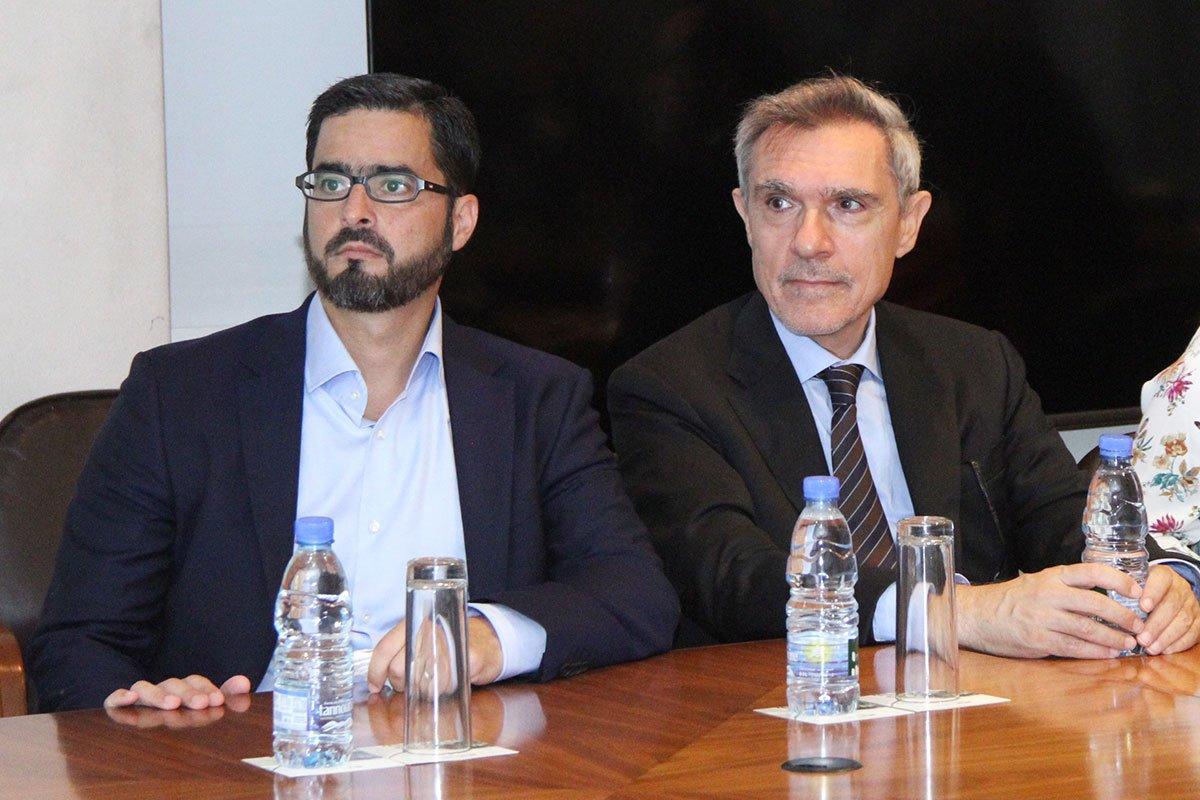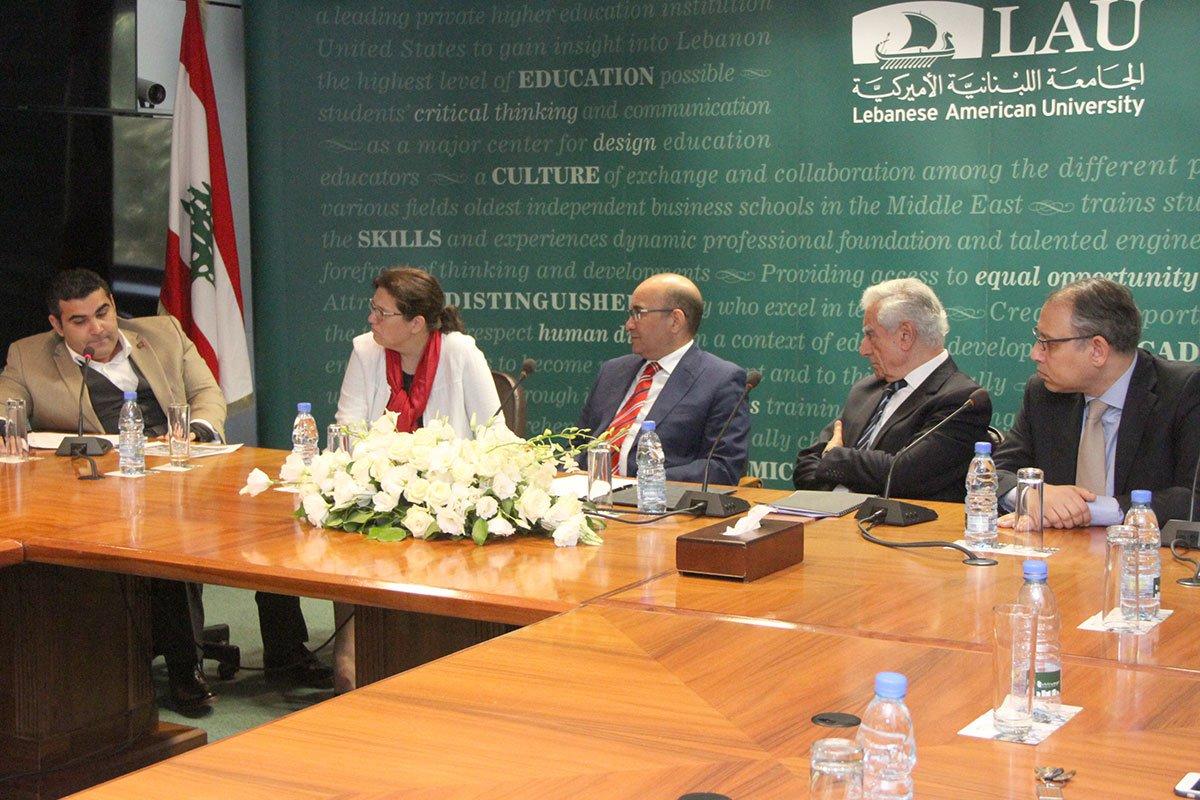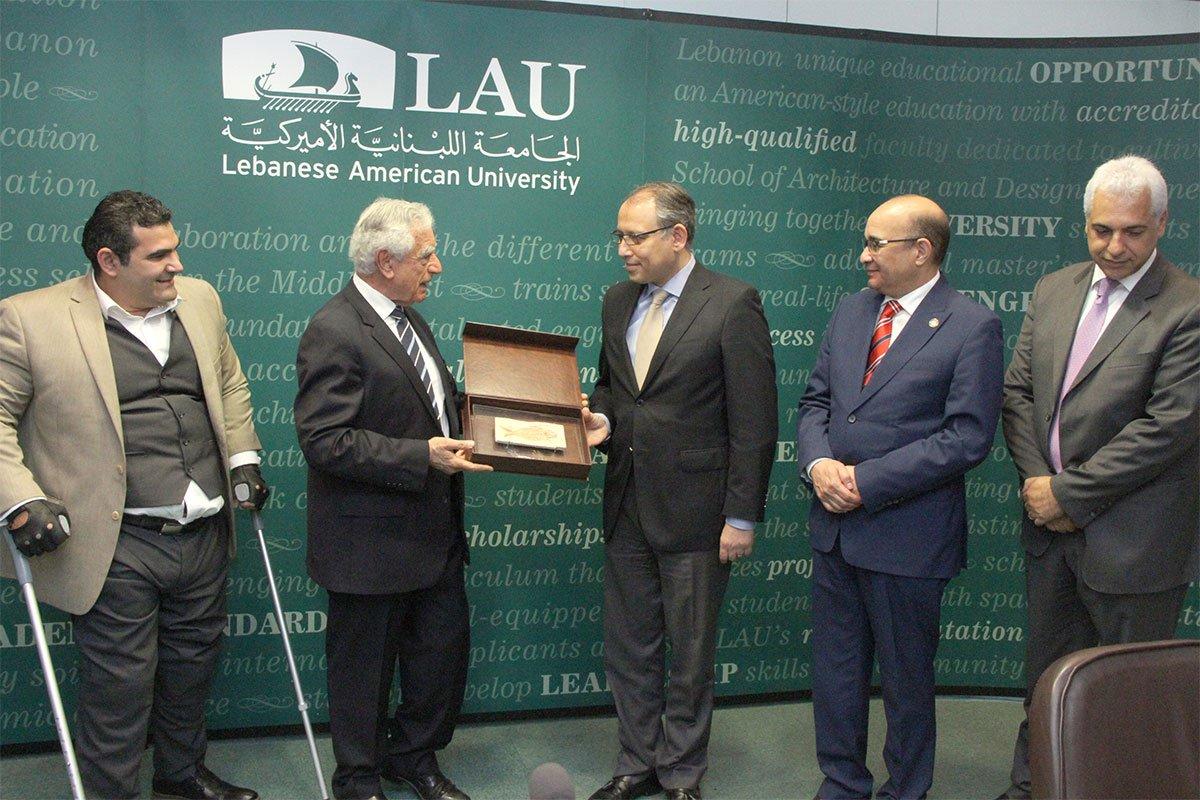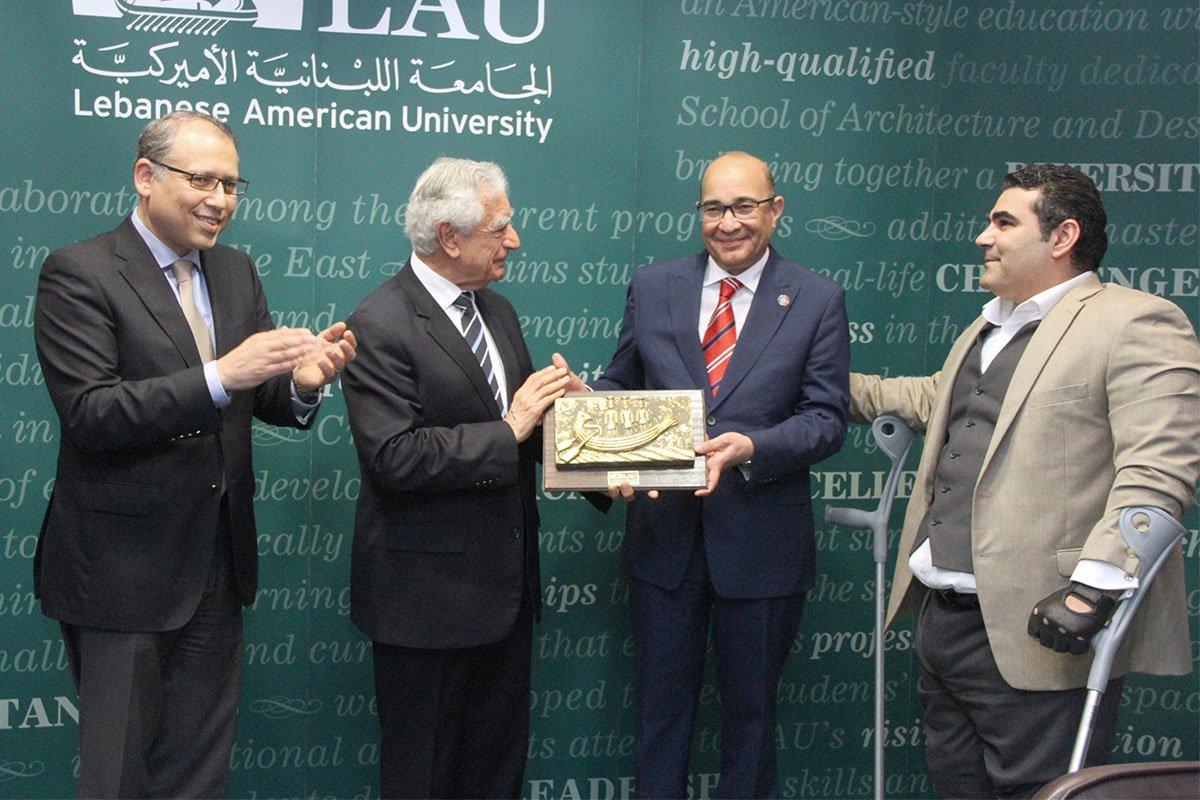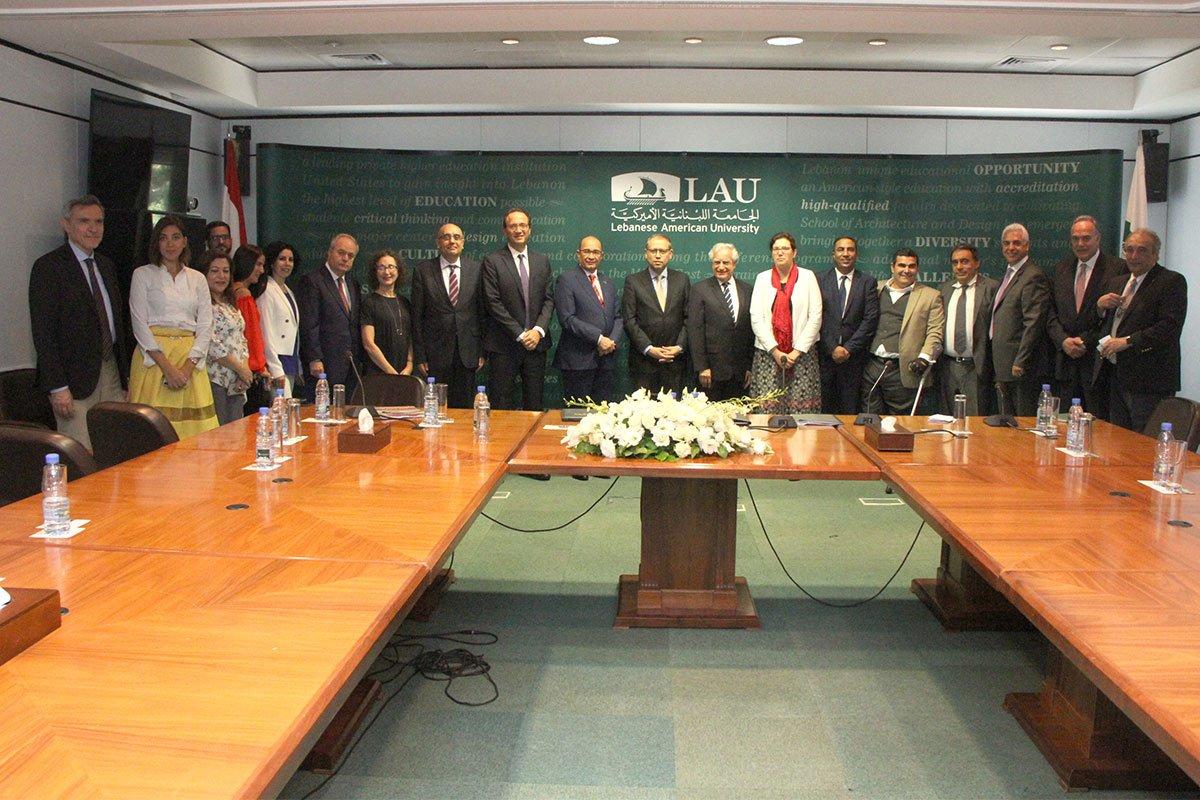Going the Extra Mile for Climate Change
Collaboration between LAU and the Egyptian Al-Ahram Foundation will underpin Michael Haddad’s North Pole Initiative.
LAU and the Egyptian Al-Ahram Foundation signed a protocol of cooperation on June 28 to confront the devastating effects of climate change through their joint support of Lebanese athlete and staunch environmental advocate Michael Haddad.
An adventurer and motivational speaker committed to safeguarding the planet, Haddad, who lost the use of his legs after a spinal injury at a young age, holds three world records in climbing, snowshoeing, and walking in Lebanon’s extreme conditions, and has been named 2016 UNDP Lebanon Climate Change Champion.
Having covered 19 km in the Cedars, scaled the Raouche Rock and summited the highest peak in Lebanon, Kornet el Sawda’, Haddad’s next challenge is to walk the 100 kilometers in the Arctic to draw attention to the threats posed by global warming and melting ice caps. The North Pole Initiative will be undertaken with the help of an exoskeleton developed by a team of faculty and students at LAU’s School of Engineering, and which was put to the test earlier this year.
The ceremony was held at LAU Beirut campus in the presence of UNDP Country Director Celine Moyroud, Egyptian Ambassador Nazih Al-Najjari, Al-Ahram Editor-in-Chief Alaa Thabet, President of Beirut Arab University Amr Galal Al-Adawi, President of the Egyptian Lebanese Businessmen Friendship Association Fathallah Fawzi, and Director of the Department of Medical Engineering at AUBMC Bassam Tabshouri, among others.
After presenting a film about Haddad’s achievements and preparations for the Arctic under the UNDP banner and with the support of LAU and AUB, Dr. Jabbra underlined the significance of the MOU.
Haddad, he said, “personifies the determination of young people, in exceeding his abilities, overcoming his physical limitations, and defying the odds to cross the 100 kilometers in the Arctic.” Apart from the parallels in their heritage, he added, the common denominator between LAU and Al-Ahram is their endorsement of Haddad as both “strive for the sake of the human being, to enrich his mind, and enhance his abilities and his life.”
Thabet expressed the foundation’s pride in collaborating with LAU, noting that Haddad’s heroic aspirations do not target Lebanon and the Arabs alone, but humanity as a whole. He thanked all those present for placing their trust in Al-Ahram, pointing out the attention that Egypt gives to people with special needs at the legislative and executive levels and the fact that Al-Ahram, itself, has a dedicated page to “Disability Challengers.”
“We will continue to boast that a Lebanese and an Arab has taken up the challenge and reached the Arctic to unleash a cry to humanity against the threat of climate change,” he said, praising LAU for the scientific project that will make the Lebanese and Arabs proud.
Looking upon the cooperation between the newspaper and the university as an extension of the strong relations between the two peoples, Ambassador Al-Najjari commended Haddad’s efforts to shed light on climate change as well as Al-Ahram’s support of the initiative.
It has taken five years of preparations to reach this stage of the venture, said Haddad, who considers the North Pole the best indicator of the catastrophic consequences of climate change. The solution, he believed, are the UN’s 17 Sustainable Development Goals, that serve as a reminder of our humanity, and the need to address urgent social, economic, humanitarian and environmental issues. “If we forget about our humanity and the earth on which we live,” said Haddad, “then we’ve lost everything.”
He went on to thank the UNDP and Al-Ahram newspaper, and lauded Dr. Jabbra for his leadership spirit. “When you believe in something that is impossible,” he said, “you defy the impossible through your leadership. Without you, we wouldn’t have been here today.”
The innovation, education and technological advancement in aid of sustainable development and clean energy so vital to Haddad’s undertaking and its goals, in fact, constitute a pillar of LAU’s Third Strategic Plan 2017-2022 (SPIII).
